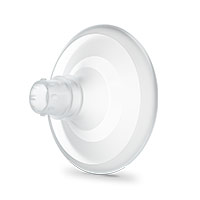Aaaah sleep. It probably seems like a distant memory to you now. Babies have a knack for keeping you up all night, but how long will this phase last? And how do you know when your little one is getting the right amount of sleep or not enough? While we don’t have a magical miracle cure for sleepless nights, we do have some answers, so read on for a slither of sleepy hope.
Zzzzzzzs through the ages
You might need a solid 8 hours sleep a night, while your friend might operate easily on just 3 hours. And just like adults, babies all need different amounts of sleep. So while the below baby sleep requirements are an average estimate, don’t worry if your baby likes more or less shut-eye.
0-3 months
It can surprise new parents just how much newborns love to sleep. They usually sleep for about 16 hours in a 24 hour period but tend to sleep in short bursts of about 2 hours at a time before waking up to feed.
3-6 months
Babies change a lot in this time and the amount of sleep they need will vary. At 3 months they might start having longer periods of sleep at night and fewer daytime naps. By 6 months you may no longer need to do nighttime feeds and your baby might even (fingers crossed) be sleeping through the night.
6-12 months
Your little one might be getting used to sleeping through the night and need about 12 hours. Daytime naps get shorter and less frequent, with just one 2-3 hour sleep in the day. While some babies might not feed at night anymore, teething, hunger, or discomfort can still wake them up.
12-18 months
Toddler sleep requirements are different from baby sleep requirements, and after your little one’s first birthday most will sleep for 10-12 hours at night with just one nap during the day.
If you’re reading these averages and thinking, great, my baby is a terrible sleeper, that’s really not the case. As we said, all babies are different and these are just estimates. There are a few things you can try to get your baby to sleep for longer, or even through the night, but try not to fixate on the numbers too much. (We know this is easier said than done when you’re sleep deprived.)
Help! How can I get my baby to sleep through the night?
It’s the million-dollar question. And while there are no certainties with sleep patterns for babies, here are a few ways you can try and get your little one to nod off at a reasonable hour, and even stay asleep.
Make a clear split between day and night. In the day, focus on bright and entertaining activities, and at night only do calming, quiet things.
Establish a bedtime routine for your little one. This could include bathing, baby massage, cuddling, reading, and soft music.
Make sure that the room environment and temperature are optimal. A baby’s room should be between 20-22.2 degrees centigrade.
Try leaving your baby to settle themselves for a few minutes if they squirm or cry when you first put them down to sleep.
Although it’s tempting to pick them up and play with them, try and avoid too much interaction when they wake up in the night. Feed and change them then put them straight back down.
A full tummy equals a sleepy baby. So make sure they’re fed well before bed.
If you’re worried about your little ones sleeping patterns then start a sleep journal. Write down the hours that they sleep and when they wake and then you can share it with a specialist for tailored advice if necessary.
What prevents babies from sleeping through the night?
If your newborn is an excellent sleeper and then at 6 months they start waking in the night, remember that changes in your baby’s sleeping patterns are usually totally normal. Be prepared to change routines as your baby enters different stages and remember sleep will be impacted by things outside your control including; growth spurts, teething, and illness.
If they’re still peckish when you put them down, they won’t sleep well. Try and do bedtime when they’re full.
Separation anxiety is common with babies and if they’re used to being held then they might not be able to self-soothe very well. A tapered approach to this is best.
Any discomfort from illness, teething, needing a nappy change, or temperature can keep them up. And sometimes, these things are outside your control.
Getting the support you need
It might not feel like it now when you’re exhausted and struggling to stay awake long enough to read this whole article, but we promise your baby’s sleep will get better. And if you really feel like no improvements are being made, then contact a sleep specialist or let your health visitor know.












 5 minute read
5 minute read